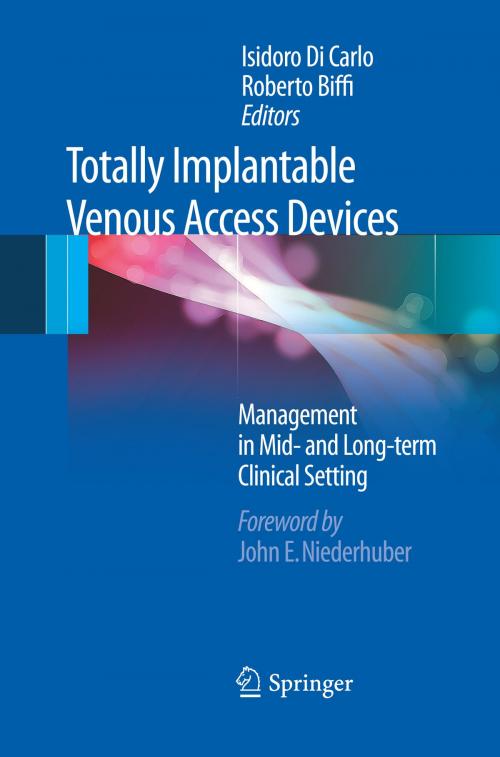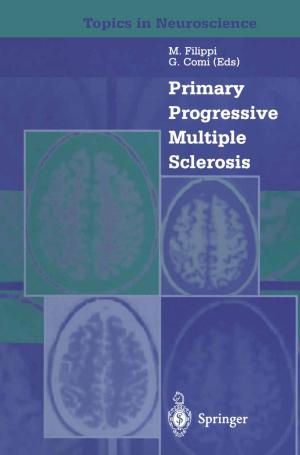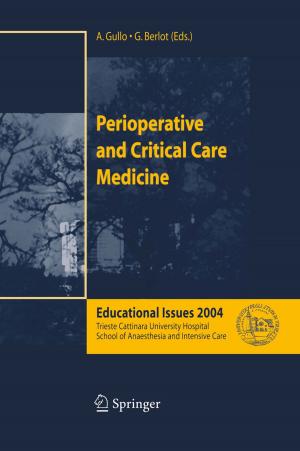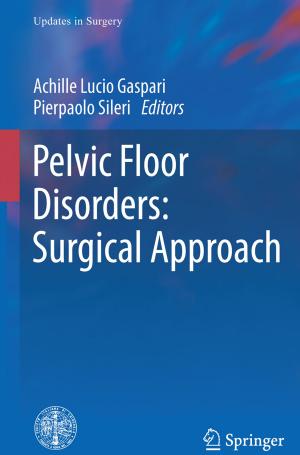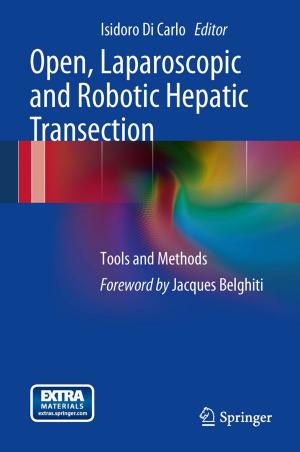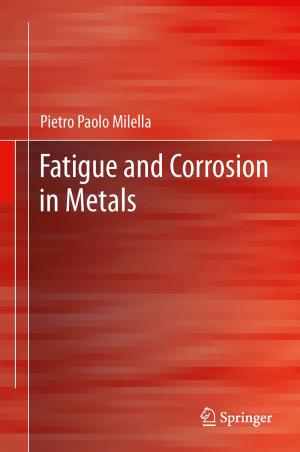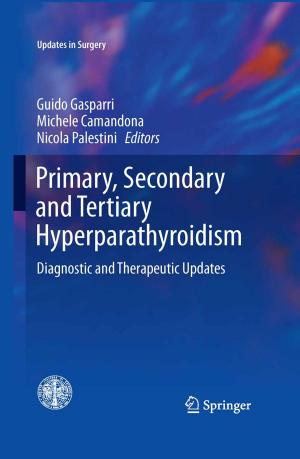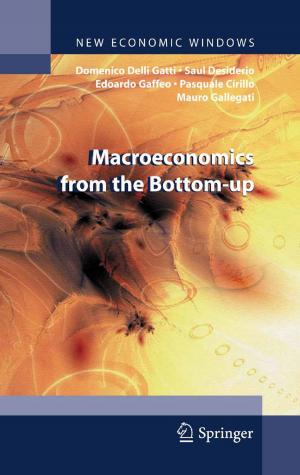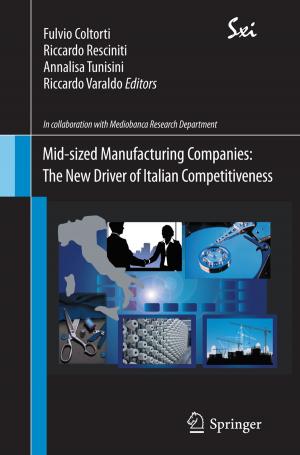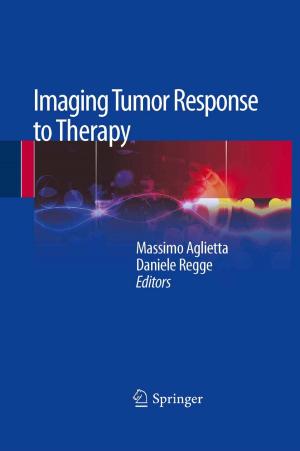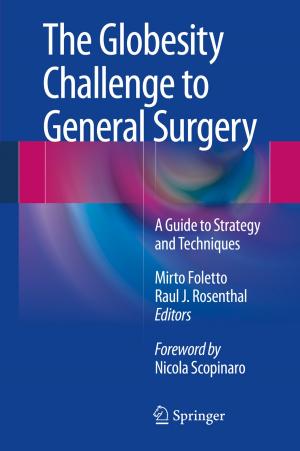Totally Implantable Venous Access Devices
Nonfiction, Health & Well Being, Medical, Specialties, Internal Medicine, General, Surgery| Author: | ISBN: | 9788847023734 | |
| Publisher: | Springer Milan | Publication: | February 1, 2012 |
| Imprint: | Springer | Language: | English |
| Author: | |
| ISBN: | 9788847023734 |
| Publisher: | Springer Milan |
| Publication: | February 1, 2012 |
| Imprint: | Springer |
| Language: | English |
Since their first application in 1982, Totally Implantable Venous Access Devices (TIVADs) have become increasingly important in the clinical practice, as more intensive chemotherapy and parenteral treatments have come into use. At this time, there is objective evidence that TIVADs are a safe, effective strategy for long-term venous access; they play a significant role throughout the management of the oncology patient, as they are needed in the initial phases for active treatments as well as in the last stages for palliative measures, making possible repeated administration of chemotherapeutic vesicant agents, nutrients, antibiotics, analgesics, and blood products. According to a number of prospective studies, use of TIVADs is associated with a significant complication rate (10% to 25% of all patients). Evidence-based data support that most complications are directly related to inappropriate technique of placement and/or nursing care, sometimes leading to TIVAD loss, significant morbidity, increased duration of hospitalization, and additional medical cost.
A group of world-renowned experts - both in the clinical and research fields – contributed to this volume, whose aim is to provide clinicians, nurses and medical students with a multidisciplinary, full update on these devices, as long term central venous access can no be longer considered a routine matter, and serious complications can be maintained at a very low level only if strict adherence to a well-defined protocol of surgical technique and of catheter care is maintained.
Since their first application in 1982, Totally Implantable Venous Access Devices (TIVADs) have become increasingly important in the clinical practice, as more intensive chemotherapy and parenteral treatments have come into use. At this time, there is objective evidence that TIVADs are a safe, effective strategy for long-term venous access; they play a significant role throughout the management of the oncology patient, as they are needed in the initial phases for active treatments as well as in the last stages for palliative measures, making possible repeated administration of chemotherapeutic vesicant agents, nutrients, antibiotics, analgesics, and blood products. According to a number of prospective studies, use of TIVADs is associated with a significant complication rate (10% to 25% of all patients). Evidence-based data support that most complications are directly related to inappropriate technique of placement and/or nursing care, sometimes leading to TIVAD loss, significant morbidity, increased duration of hospitalization, and additional medical cost.
A group of world-renowned experts - both in the clinical and research fields – contributed to this volume, whose aim is to provide clinicians, nurses and medical students with a multidisciplinary, full update on these devices, as long term central venous access can no be longer considered a routine matter, and serious complications can be maintained at a very low level only if strict adherence to a well-defined protocol of surgical technique and of catheter care is maintained.
